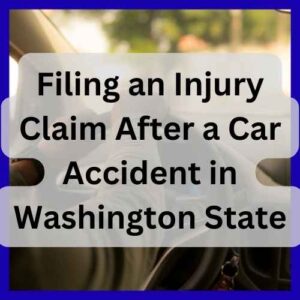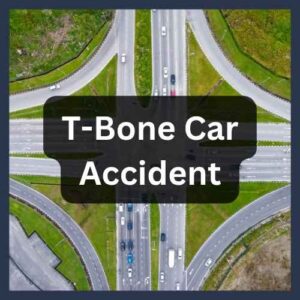
If you’re facing a car accident deposition in Washington State, you may feel a mix of anxiety and uncertainty. Not to worry—at R Martin Law Group, we’re passionate about empowering injured clients with know-how, strategy, and confidence. The deposition process is a vital part of your personal injury claim, and your testimony has the power to sway the course of your entire case. With decades of experience guiding clients through the ins and outs of depositions, Attorney Rich Martin—renowned as one of the National Top One Percent personal injury attorneys—offers you an essential guide on how to prepare, what to expect, and how to leverage every tool at your disposal for a strong and persuasive performance.
Let’s dive deep into the must-know strategies and secrets for handling your car accident deposition in Washington State. We’ll cover preparation tips, the crucial role of photographs and visual aids, legal rules for evidence, and answers to the burning questions that keep car accident victims up at night. Ready? Let’s get started.
If you’re in Bellevue and already need the assistance of a car accident lawyer, contact us today for a free consultation
What to Expect When Giving a Deposition After a Car Accident
You might wonder, what to expect when giving a deposition after a car accident in Washington? A deposition is an out-of-court, sworn testimony in which attorneys for the opposing side—and sometimes your own—ask a series of questions about your accident, injuries, background, and recovery. Your answers are recorded and may be used in court.
This process may sound intimidating, but think of it as your chance to “set the record straight.” The questions can cover everything from moment-by-moment details of the collision to your current physical and emotional state. It’s designed to clarify the evidence, lock in your account, and uncover inconsistencies.
Who attends a deposition?
- You (the plaintiff)
- Your attorney
- Defense attorney(s)
- A court reporter (to transcribe)
- Occasionally, insurance representatives
How does the deposition flow?
- Oath: Sworn in, affirming to tell the truth
- Questioning by attorneys (primarily the opposing party)
- Occasional clarifications or objections by counsel
Remember: The deposition takes place in a conference room, not a courtroom—but the stakes are real. Everything you say may later influence settlement value or even be replayed in front of a jury.
How to Prepare for a Car Accident Deposition Testimony
Preparation is the backbone of confidence! Wondering, how to prepare for a car accident deposition testimony so you walk in feeling cool, collected, and credible? Let’s unpack the expert approach.
1. Meticulously Review Key Documents
One of the most common questions we hear is, what documents should I review before a car accident deposition? You want to know every major detail forwards and backwards.
- Police Reports: Verify the facts of the accident and ensure you recall the most relevant details, such as date, location, parties involved, and officer notes.
- Medical Records: Refresh your memory about diagnoses, treatment plans, medications, follow-up care, and prognosis.
- Insurance Claims: Know what you (and other parties) have reported thus far, and anticipate questions about inconsistencies or omissions.
- Witness Statements: If available, these can fill in gaps, refresh your recollection, or alert you to points you might be asked about.
- Photos & Visual Aids: If you have photographs of vehicle damage, accident scenes, injuries, or other key evidence, study them closely—they ground your narrative in visual reality.
2. Practice Makes Perfect—With the Right Attorney
Debrief and rehearse common questions with your lawyer. Your attorney will “play defense,” predicting aggressive lines of questioning and coaching you to answer truthfully, consistently, and concisely.
This rehearsal also includes role-play: practicing calm delivery, handling tricky follow-up questions, and maintaining composure when pressed. Preparation reduces stage fright and minimizes the risk of confusion under pressure.
The Honesty Policy: Tell The Truth, Every Time
It’s no exaggeration: Honesty is your shield and sword in every car accident deposition in Washington State. You’re testifying under oath. If you deviate, even unintentionally, it can devastate your credibility and jeopardize your entire claim.
- Don’t embellish or downplay injuries. If you’re uncertain, say “I don’t recall” or “I’m not sure”—never guess!
- Stick only to facts you know first-hand.
- If you discover you were mistaken, clarify promptly or ask your attorney how best to correct the record.
By refusing to speculate, you guard yourself from traps set by opposing counsel designed to trip up witnesses.
Keep It Simple: Answer Exactly What’s Asked
Here’s a golden rule: Don’t volunteer extra information. Some witnesses, eager to be helpful, overshare details that go beyond the question. This “TMI” (too much information) can open doors for cross-examination and unnecessarily complicate your case.
- Offer direct, concise responses.
- If you don’t understand a question, ask for clarification.
- If you need a moment to gather your thoughts, pause—there’s no rush!
Your attorney will step in if questions become unclear, unfair, or harassing. If in doubt, glance at your lawyer—a subtle cue to intervene.
Stay Calm and Command Respect
Depositions can feel like a marathon, with repetitive questions or confrontational tactics meant to unsettle you. Embrace a slow, calm, methodical approach. Take deep breaths, maintain eye contact, and speak steadily.
- If you feel overwhelmed, request a break through your attorney—this isn’t a test of endurance.
- Remember, no matter how aggressive the questioning, professionalism earns respect (and looks great in the transcript!).
Why Is It Important to Have a Lawyer During a Car Accident Deposition?
Here’s a simple truth: Never go into a car accident deposition in Washington State without an experienced attorney by your side. Clients often ask, why is it important to have a lawyer during a car accident deposition? The answer is simple: Your attorney is your advocate, guide, and first line of defense.
What does your attorney do for you?
- Prepares you for deposition strategies used by defense attorneys and insurance companies.
- Objectively assesses your strengths and weaknesses to present you in the best light.
- Intervenes if questions become inappropriate, irrelevant, or harassing.
- Makes on-the-spot legal objections, protecting your rights to privacy and privilege.
- Advises you when not to answer and when to seek clarification.
At R Martin Law Group, we stand shoulder to shoulder with our clients from day one, ensuring that your interests always come first.
How Do Photos Help During a Car Accident Deposition Testimony?
The old adage “a picture is worth a thousand words” is never truer than in a car accident deposition. Clients frequently ask, how do photos help during a car accident deposition testimony? Here’s why visual aids are pure magic in depositions—especially in personal injury cases.
The Power of Visual Evidence
- Sharpens Clarity: Photos of the accident scene, property damage, injuries, and relevant landmarks provide context that words alone cannot.
- Makes Testimony Stick: Studies show jurors and attorneys remember up to 65% more when visuals are presented—far superior to only hearing an account.
- Boosts Credibility: When your account matches photographic evidence, your version of events is harder to dispute.
- Eliminates Ambiguity: When everyone can “see” what you mean—where your vehicle was stopped, the direction of impact, the crumpled fender—the risk of misunderstanding shrinks dramatically.
- Supports Consistency: Use photos to refresh your memory and maintain accuracy if your testimony is challenged month or years after the event.
Emotional Impact
Emotion matters in injury law. Photos can awaken empathy, showcasing the extent of your pain or the dramatic loss experienced. Just ensure they’re authentic, relevant, and not unduly graphic—your lawyer will help you find the right balance.
Legal Considerations for Using Visual Evidence During Depositions in Washington State
Even the best photographic evidence can be sidelined if not properly handled. In a car accident deposition in Washington State, certain legal standards must be met so visuals have the desired impact—and don’t backfire.
1. Relevance and Purpose
All visual aids (e.g., photos, diagrams) must directly relate to the issues in dispute. This could mean images of your car right after the crash, X-rays of your injuries, or diagrams clarifying traffic patterns.
2. Authentication
A witness (often you or someone who took the image) must confirm that each visual “fairly and accurately represents what it purports to show.” Digital photos are accepted if you confirm their authenticity.
3. Laying a Foundation
- Identify each photo or diagram.
- Establish how and when you saw the depicted scene.
- Explain why it’s accurate and relevant.
- Each exhibit is marked and reviewed with all attorneys present.
4. Avoiding Prejudice
Courts may exclude photos that are overly dramatic, graphic, misleading, or likely to unfairly influence decisions. Your attorney will help select images that are powerful, persuasive, and appropriate.
5. Procedural Rules Compliance
Washington has its own rules regarding introducing and presenting evidence in depositions. Your lawyer ensures all steps are followed: advance notice, exhibit sharing, and prompt objection to problematic visuals.
6. Chain of Custody
Your visuals should be preserved carefully, with records showing who handled them, to avoid allegations of alteration or tampering—especially with digital files.
7. Expert Testimony
Some visuals—like accident reconstructions or injury animations—need validation by experts. If such evidence is important in your case, R Martin Law Group works with leading expert witnesses to authenticate and explain each visual.
How to Use Photos and Visual Aids Most Effectively
- Bring a clean, labeled copy of each photo you intend to reference.
- Be ready to explain how and when each was taken.
- Consult your attorney first—never introduce a visual without warning!
In Washington State, a strategic combination of your truthful testimony and persuasive visual evidence can turn a “he said, she said” scenario into a compelling and winning claim.
Tips for a Successful Car Accident Deposition in Washington State
Here’s your practical checklist—drawn from our years representing injury victims just like you:
- Know your story, but don’t memorize it. Authenticity matters.
- Review documents—be a master of the facts.
- Rehearse with counsel. Simulate tough questioning.
- Keep answers brief and precise.
- Correct mistakes promptly—honesty trumps perfection.
- Bring relevant photos or diagrams—visuals amplify your case.
- Dress professionally and exude calm.
- Never guess. “I don’t recall” is perfectly acceptable.
- Lean on your attorney. Don’t field tough queries alone.
- Be polite but firm with repetitive or tricky lines of questioning.
Your Best Deposition Starts With the Right Team
Handling a car accident deposition in Washington State isn’t just about knowing the facts—it’s about powerful presentation, composure, strategy, and unwavering legal support. By preparing thoroughly, leveraging compelling photos, sticking to the truth, and working with a top lawyer, you dramatically improve your odds for a successful personal injury claim.
Key takeaways:
- Preparation is everything—review, rehearse, and strategize.
- Always have skilled legal counsel by your side.
- Use photos and visual aids to clarify and strengthen your story.
- Follow legal protocols so your evidence counts.
- Stay composed, confident, and cooperative—your credibility is your currency.
If you’re facing a deposition or need help after a car accident, contact R Martin Law Group today. Rich Martin and his team are relentless advocates for injured clients across Bellevue and the Greater Seattle area. Schedule a confidential consultation and let us put our expertise to work for you—because your story deserves to be told, and your rights deserve to be protected. Don’t face a car accident deposition alone. Reach out now to equip yourself with the best ally in Washington State personal injury law.
Contact us today for a no-obligation consultation and take the first step towards finding peace of mind.
Call (425) 635-2000 to Discuss Your Case Details. 100% No Win No Fee Guarantee.








